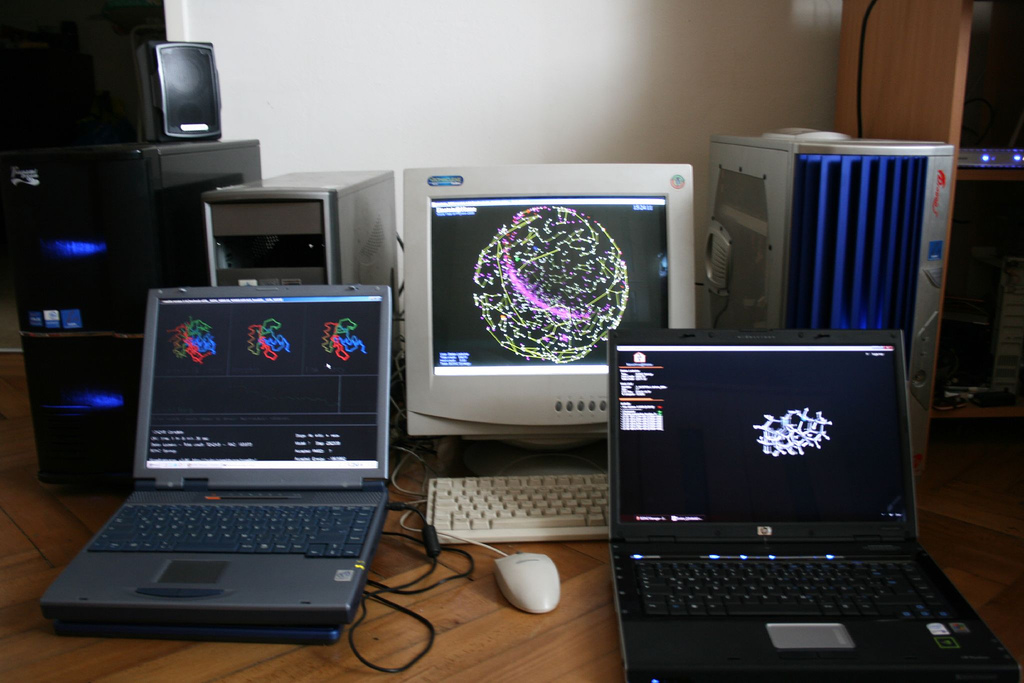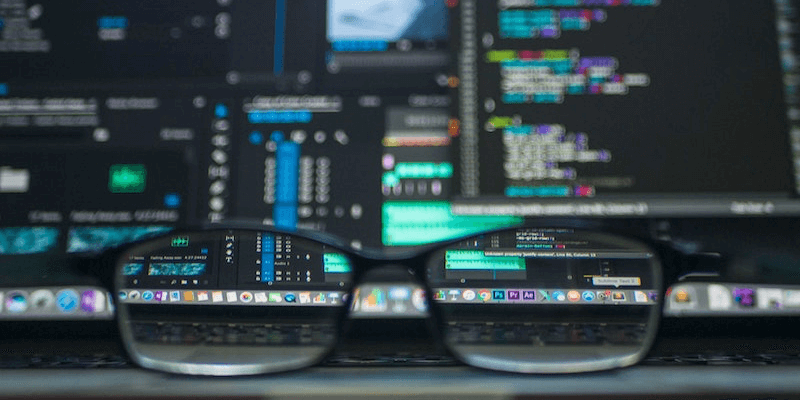 Learning how to secure personal data is no easy task, especially for the average person. The average user has limited knowledge of data security and the risks involved in leaving personal data unsecured. Terms like data leaks, phishing and computer hacking have little meaning to them, as they believe they are not a target. Contrary to their belief, no one is immune for cybercrime. Whether you are rich or poor have good credit, bad credit or no credit, everyone is fair game in eyes of cyber-crooks. Today is no longer the age of petty theft; there are bigger fish to fry in the age of technology. As a result, those who don’t educate themselves on best data security practices are often the first ones to fall prey to these scams. In an independent survey, nine geeks – paranoid about data security – were interviewed. The key to staying secure is not to pull-out-all-the-stops. The following things need to be done to protect your online identity.
Learning how to secure personal data is no easy task, especially for the average person. The average user has limited knowledge of data security and the risks involved in leaving personal data unsecured. Terms like data leaks, phishing and computer hacking have little meaning to them, as they believe they are not a target. Contrary to their belief, no one is immune for cybercrime. Whether you are rich or poor have good credit, bad credit or no credit, everyone is fair game in eyes of cyber-crooks. Today is no longer the age of petty theft; there are bigger fish to fry in the age of technology. As a result, those who don’t educate themselves on best data security practices are often the first ones to fall prey to these scams. In an independent survey, nine geeks – paranoid about data security – were interviewed. The key to staying secure is not to pull-out-all-the-stops. The following things need to be done to protect your online identity.

Offline data protection:</strong>
Most of our sensitive data is not online. That means that your data is saved on your PC somewhere. Therefore, travelling with your laptop can be risky. Since laptops are hot items, the thieves love to steal them. What’s scarier is that nearly all stolen laptops will have their hard-drives scourged. Information such social security numbers and confidential personal information can then be used to conduct crimes such as identity fraud and perhaps even more serious offenses using the identity of their victim. Consequently, geeks have long been protecting their personal data with folder encryption software
Encrypt your online connection:
True computer geek never reveals his online identity, he or she hides their identity just in case they are being spied upon by the government, corporations or other hackers. Be it on social media, causal surfing or using the smart phone, they are always connected with a virtual private network. The VPN is software which encrypts your online identity, making you appear as someone you’re not. Thus, you could be sitting in Kansas, yet anyone spying on you sees that your location is in Alaska. Perhaps the most and dynamic VPN is the Tor browser. Users can download this browser for free and use it every day, although, using VPN will slow down your internet connection speed, so one has to be prepared to compromise on that front.
Lockdown all external drives:</strong>
If you use external hard-drives and USB flash drives, then you need to add a layer of security on them ASAP. Most external storage devices are used to transport large chunks of data from point A to B. This means that at some point during your journey, there is a chance you might end up losing or having your device stolen. Geeks know the risks that come when travelling with your external drives; therefore they have taken measures by password-protecting their external drives with external drive encryption software. These security software are often self-executable and don’t depend on an operating system to run.
Computer Security Geeks For Geeks
Computer security geeks for geeks is a website dedicated to providing resources, tips and tutorials related to computer security. It is a great resource for those looking to learn more about security topics and keep up with the latest trends in the industry. It covers a variety of topics such as malware, encryption, network security, and more.
Cyber Security For Beginners
Cyber security can be challenging for beginners, as it involves a wide range of topics such as encryption, network security, malware, and more. It is important to have a good understanding of the fundamentals before attempting to tackle more advanced topics. With the right resources, however, it is possible for beginners to learn the basics of cyber security and eventually become more proficient in the field.
Can I Learn Cyber Security In 2 Months?
No, cyber security is a complex field and requires a lot of time and effort to learn. It is not possible to become an expert in two months. However, it is possible to learn the basics of cyber security within a short period of time if you are dedicated and have access to the right resources.
Skills Need For Cybersecurity
The skills needed for cyber security are varied and depend on the specific job or role you are looking to fill. Generally, cyber security professionals need to have a strong understanding of computer networking, operating systems, software development, cryptography, and other related topics. They should also have strong problem-solving and analytical skills, as well as the ability to think critically and creatively. Additionally, they should have strong communication and organizational skills, as well as the ability to work independently and in a team.
Goals Of Computer Security
1. Protecting the confidentiality of data and information: This involves ensuring that only authorized personnel have access to sensitive information and that information is not disclosed to unauthorized parties.
2. Ensuring the integrity of data and information: This goal involves making sure that data and information is accurate and has not been altered or compromised.
3. Ensuring the availability of data and information: This goal involves making sure that data and information is always available when needed.
The Aim Of Security
The aim of security is to protect data and information from unauthorized access, use, modification, disclosure, or destruction. Security measures are designed to ensure the confidentiality, integrity, and availability of data and information.
Security Key Objectives
The security key objectives are to protect the confidentiality, integrity, and availability of data and information. This involves protecting data and information from unauthorized access, use, modification, disclosure, or destruction. Security measures should also be designed to protect against malicious attacks, such as viruses, malware, and other threats.
Importance Of Computer To Security
Computer security is essential for protecting the confidentiality, integrity, and availability of data and information. Computers are used to store, process, and transmit data, so it is important to ensure that these systems are secure. Security measures such as authentication, encryption, and access control can be used to protect computers from unauthorized access. Additionally, antivirus and anti-malware software can help protect computers from malicious attacks.
Basic Computer Security
Basic computer security includes measures such as authentication, encryption, access control, antivirus and anti-malware software, and regular security patching. Authentication is the process of verifying a user’s identity before allowing access to a system. Encryption is the process of scrambling data so that it is unreadable to anyone without the correct key. Access control is the process of restricting access to certain areas or files. Antivirus and anti-malware software help protect computers from malicious attacks.
Example Of Computer Security
An example of computer security is using a strong password to protect user accounts. This can help prevent unauthorized access to the system and protect sensitive data. Other forms of computer security include two-factor authentication, encryption, access control, antivirus and anti-malware software, and regular security patching.
Father Of Computer Security
The father of computer security is considered to be Dr. Frederick B. Cohen. He is credited with creating the first formal model of computer security in 1984. He is also known for his work on malware and computer viruses, as well as for his pioneering work on intrusion detection systems.
Safety Tips For Computer Security
1. Use strong passwords and change them regularly.
2. Install and regularly update anti-virus, anti-malware, and firewall software.
3. Enable two-factor authentication whenever possible.
4. Limit access to sensitive data and systems.
5. Backup important files regularly.
6. Use encryption for data stored on computers and networks.
7. Regularly patch and update software.
8. Monitor system and network activities.
Common Types Of Computer Security Risks
1. Malware: Malicious software designed to damage or disable computer systems.
2. Phishing: Attempts to acquire sensitive information such as usernames, passwords, and credit card details by pretending to be a trustworthy entity in an electronic communication.
3. Social Engineering: Manipulation of people into performing actions or divulging confidential information.
4. Data Breaches: Unauthorized access to sensitive data stored on computer systems.
Types Of Computer Security
1. Network Security: Protecting a computer network from unauthorized access, misuse, and destruction.
2. Application Security: Protecting applications from malicious attacks and vulnerabilities.
3. Data Security: Protecting data from unauthorized access, modification, or destruction.
4. Endpoint Security: Protecting computers and mobile devices from malicious attacks.
5. Physical Security: Protecting physical assets such as computers and servers from theft or destruction.
Principles Of Security
1. Confidentiality: Ensuring that data is only accessible to authorized individuals.
2. Integrity: Ensuring the accuracy and completeness of data.
3. Availability: Ensuring that data and systems are available when needed.
4. Authentication: Verifying the identity of users before granting access to resources.
5. Authorization: Ensuring that users only have access to the resources they are authorized for.
Security Domains
1. Access control
2. Network security
6. Cryptography
7. Physical security
8. Disaster recovery
9. Risk management
10. Business continuity
What Is 3 Level Security?
3-level security is a security model that defines three security layers that must be addressed in order to protect a system from unauthorized access. The three levels are: physical security, network security, and application security.
Summary:
Sadly most people are well aware of the risks involved when their private data is not secured, yet time and time again they fail to take the rec
ommended measures. Thus, it’s more of an issue of being lazy rather than being misinformed.
